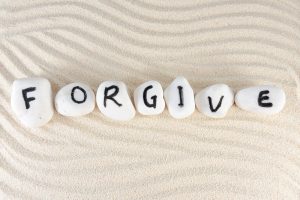“The great enemy of the truth is very often not the lie—deliberate, contrived and dishonest—but the myth, persistent, persuasive and unrealistic.” — For Today, p. 12
I love this quote from For Today because, for me, what needs recovery is the story I tell myself. A big myth for me is this: with no effort on my part, I’ll be perfect in all arenas. My childhood will be rewritten into one with an idyllic and loving home. I’ll be fun but mature; beautiful, sexy, and slim (but modest); and witty and quick but a good listener. My life will be one of ease, even as I get to eat whatever I want, whenever I want—you get the picture.
While the lie is so much more obvious and recognizable, when I moved from lies into reality (thank you, Fourth Step), I still felt incapable of permanent change. I was rooted in the very dark truth of where I came from: the child who was unloved and unwanted since birth; the only one of six who was propped with a bottle; the victim of incest, rape, and verbal, physical, and mental abuse; the lesser of my siblings; a child with multiple addictions, self-hatred, and multiple auto-immune disorders. I was the one on a constant roller coaster of weight gain and loss, with rises and dives of more than 100 pounds (45 kg)—this was no surprise because I was really, really stuck in the truth of my growing up. Even though I hadn’t lived in that house since I was 17 years old, I carried it everywhere. Being raised there was my identity, my excuse, and my familiar space where I retreated.
The choices I make today can repeat past experiences or be the beginnings of new truths about me.
Almost thirty-eight years have passed since I left my childhood home, and I have come to recognize that the “me” I am now was being created through all those experiences. As Alcoholics Anonymous says, “We will not regret the past nor wish to shut the door on it” (p. 83). The choices I make today can repeat past experiences or be the beginnings of new truths about me. I’m willing! Now, for a few years in a row, I’ve consistently shown up in my own life with loving-kindness and support for me and others.
I’ve lost more than 50 pounds (23 kg) and the weight hasn’t found its way back. I use all the tools I have gathered in and out of the program, from therapists, sponsors, and others along the way. I show up abstinent. I look forward with hope instead of looking back with despair. I live my program. I feel and express all my emotions. I am vulnerably me regardless of who is in the room. I will continue to blossom in the “sunlight of the Spirit” (p. 66). My story is still being written, and some of my truths are just tiny emerging shoots that need a lot of attention because I’m still learning. That will continue my whole life.
But whole and healing thinking only exists when I’m not standing in the neediness of my addiction. If I focus only on what can bring me ease and comfort in this moment, my thinking starts to distort, and it happens at warp speed unless I’m swaddled in recovery. The constant rebalancing of body, mind, and spirit requires work and discipline to become my new habit. The old habit was so familiar, so persuasive in its cocoon, beckoning with a promise of blissful unconsciousness. The idea that I could go into a food binge (a spiritual death) and yet also control finding my way out—that was the biggest myth of all.
If I could control food the way it controls me, I wouldn’t need OA. But the truth is, I can’t. I’m here where I’m supposed to be, turning my will and my life over to the care of the Spirit on a daily basis. I’m writing my new chapters of recovery instead of standing in the myth of what isn’t … anymore.





